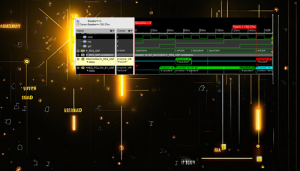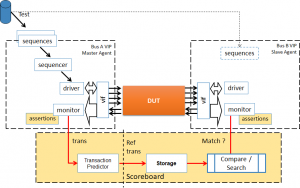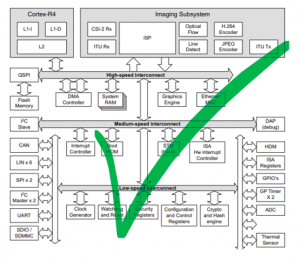The course is built around the following key aspects:
- Build a Verification IP
- Mastering the UVM Register Abstraction Layer
- Develop any types of complex sequences using UVM advanced sequence features
- UVM details on the factory, callbacks, TLM ports
- Using the DPI in a UVM environment



![SystemVerilog for Verification [TM500-SV]](https://verification.school/wp-content/uploads/2020/06/logos-1-300x169.png)







